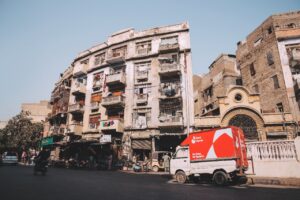In the world of click-and-buy, there are few events that compare to the fervor and anticipation surrounding the 11.11 sale that takes place in November annually. The shopping event in Pakistan has successfully recreated the same level of excitement that is usually experienced during the holiday season in the West, even though there is no cultural event taking place during this period in Pakistan. This shopping extravaganza has continued to become bigger and better with greater discounts. Spearheaded by e-commerce giant Daraz, the 11.11 sale has firmly established its place as the biggest sale of the year. Apart from providing attractive discounts to consumers, the mega sale also acts as a trigger for the expansion of the ecosystem, an increase in employment opportunities, and a substantial boost to the local economy. It is crucial to acknowledge how Daraz has succeeded in making 11.11 the most eagerly anticipated shopping event, leading to a series of economic opportunities for various players in the ecosystem.
Daraz Pakistan has successfully ingrained in the minds of Pakistani consumers that the 11th of November is a nationwide shopping festival. Similar to Black Friday in the United States or Diwali in India, this date is now associated with incredible deals and discounts for Pakistan’s online shoppers. As November approaches, consumers eagerly anticipate the sale, preparing to make big-ticket purchases ranging from electronics and fashion to home appliances and beauty products.

This goes on to underscore the psychological aspect of this seasonality. Consumers tend to withhold major purchases throughout the year, waiting for the 11.11 sale to arrive. This strategic patience can lead to considerable savings, and as a result, this annual shopping bonanza has become a momentous part of the financial planning for many families.
The Ripple Effect
What is interesting to note is that the 11.11 sale isn’t just about great deals for consumers; it has a ripple effect that reaches far beyond individual savings. One of the most striking aspects of this event is the way it envelopes various players within the ecosystem.
Digital Payment Partners:
As millions of consumers flood online marketplaces to make purchases, digital payment partners are crucial in facilitating smooth and secure transactions. With the immense surge in digital payments during the 11.11 sale, digital payment providers experience a substantial uptick in their business. This surge also promotes financial inclusion by encouraging more people to adopt digital payment methods.
Retail Brands:
The 11.11 sale provides an exclusive opportunity for numerous brands to clear out their inventory and showcase new products. Brands actively participate in this event, offering exclusive discounts and bundles to attract shoppers. This not only boosts their sales but also helps them maintain a competitive edge in the market.
Logistics Companies:
The logistics sector experiences a substantial surge in demand during the 11.11 sale. With a massive volume of orders to fulfill, logistics companies gear up to ensure timely delivery. This translates into more work for delivery personnel, warehouse staff, and other related roles. The sale creates temporary and sometimes long-term job opportunities within the logistics industry.
Riders and Delivery Personnel:
What follows then is a surge in the demand for delivery services. Riders and delivery personnel find themselves at the forefront, ensuring that packages reach customers on time. This surge in demand for their services provides employment opportunities and strengthens the gig economy.
Economic Boost
The economic impact of the 11.11 sale in Pakistan is nothing short of profound. It’s not just a one-day shopping spree; it’s an event that has a lasting effect on the economy.
Consumer Spending:
During the 11.11 sale, consumer spending reaches its peak. Families and individuals spend on a wide range of products, boosting economic activity and contributing to GDP growth. This spending also extends to items that may not be directly related to the sale, such as home improvement and entertainment.
Business Revenue:
For businesses, especially those in the e-commerce sector, the sale can make or break their annual revenue targets. The event provides an enormous revenue boost, allowing businesses to expand, invest in technology, and improve their product offerings.
Job Creation:
The increase in demand owing to the 11.11 sale leads to immense job creation across various sectors. This includes temporary roles in logistics, increased staffing for customer support, and even opportunities for content creators and marketers to promote the sale.
Ecosystem Growth:
The grand sale catalyzes ecosystem expansion. As businesses gear up to meet customer demands, they invest in their infrastructure and technologies. This, in turn, fosters innovation and growth within the entire ecosystem, spurring economic development.
The 11.11 sale organized by Daraz has grown into something much bigger than just a shopping event. It has become a significant driving force for economic growth and opportunity in Pakistan. As digital payment partners, retail brands, logistics companies, and delivery personnel all benefit from the surge in demand generated by the sale, it leaves a lasting economic impact that echoes throughout the country, underscoring the 11.11 sale’s status as the most eagerly anticipated sale of the year.





woahh, wa ji wa, what a PR article…where is journalism 101? it is important to discuss the marketplaces downsides as well. As an Ex Careem and Telenor, here are some insights for the readers to know about marketplaces:
1/ Competition – tending to monopolistic position, hence destroying value on long term by reducing sellers optionalities.
2/Fees: Platforms often charge fees for transactions and listings, which can eat into seller margins. traction to extraction model,becasue they have to increase returns for investors. platforms do not work for sellers, they work for investors, mind it.
3/Control and Branding: Sellers have limited control over the presentation and branding of their products, which can affect their ability to build a distinct brand identity.
4/Reliance on Platform: There is a dependency on the platform for sales, which can be risky if the platform changes its rules or fees. Risk of censorship, arbitrary decision by a central authority you never know, black box policy effect.
5/ Dispute Resolution: Resolving disputes can be complicated, as it often involves the platform’s policies and intervention.
6/Data Sharing: Marketplaces have access to significant data on sales and customers, which they may use to their advantage, sometimes competing directly with sellers. selelrs are custoemrs are the product, mind it. they use those data for advertising and also redirect channel for they own benefits, not the sellers/custoemrs they serve.
7/ Quality Control: It can be difficult to ensure the quality of products sold by other vendors on the platform, which can affect customer trust. no way to verify what you buying is genuine and even dangereous, like children toy with hazardeous chemicals etc.